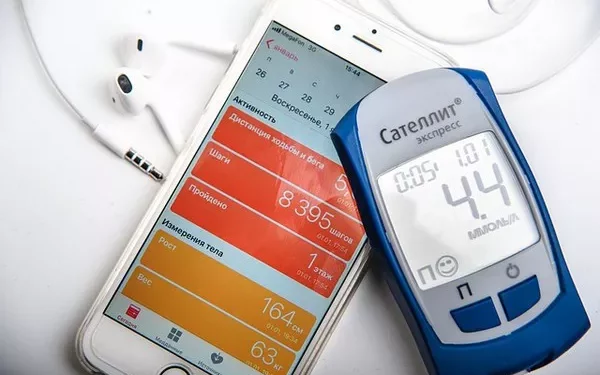Hypoglycemia, or low blood sugar, is a condition where blood glucose levels fall below the normal range, typically under 70 mg/dL (3.9 mmol/L). For people with diabetes, hypoglycemia is a common side effect of certain medications, particularly insulin and some oral drugs. It can lead to a range of symptoms, from mild discomfort to serious complications like seizures or unconsciousness. Knowing when hypoglycemia goes away and how to treat it is critical for people managing diabetes, as well as for those around them.
This article will provide a detailed exploration of hypoglycemia, what causes it, its symptoms, treatments, and the timeline for recovery.
Understanding Hypoglycemia
Hypoglycemia occurs when blood sugar drops too low to meet the body’s energy demands, especially the brain, which relies heavily on glucose for functioning. While most people associate hypoglycemia with diabetes, it can also occur in non-diabetics due to various conditions or circumstances.
The most common cause of hypoglycemia in diabetics is overtreatment with insulin or oral hypoglycemic medications, missed meals, or excessive exercise. In non-diabetics, hypoglycemia can be caused by:
Certain medications: Some non-diabetic medications can lower blood sugar.
Alcohol: Drinking alcohol on an empty stomach can cause hypoglycemia.
Severe liver or kidney disease: These conditions can affect glucose metabolism.
Hormonal deficiencies: Rare disorders, such as adrenal insufficiency, can cause low blood sugar.
Recognizing hypoglycemia early and taking action is crucial to prevent the condition from worsening.
Symptoms of Hypoglycemia
Before diving into how long it takes for hypoglycemia to go away, it’s important to understand its symptoms. They generally occur in stages, starting with mild symptoms and potentially progressing to more severe ones if untreated.
Mild Symptoms:
- Shakiness
- Sweating
- Palpitations or rapid heartbeat
- Hunger
- Lightheadedness or dizziness
- Nervousness or anxiety
- Headache
Moderate Symptoms:
- Irritability or confusion
- Difficulty concentrating
- Weakness or fatigue
- Blurred vision
Severe Symptoms:
- Seizures
- Loss of consciousness
- Coma
Severe hypoglycemia is a medical emergency that requires immediate treatment, as it can lead to long-term brain damage or death if not properly managed.
Causes of Hypoglycemia
The primary causes of hypoglycemia differ between diabetics and non-diabetics. However, certain key triggers are common across both groups.
In Diabetics:
Excessive Insulin or Medication: Taking too much insulin or other diabetes medications that increase insulin levels can cause blood sugar to drop too low.
Skipped or Delayed Meals: Not eating at regular intervals or skipping meals can lead to low blood sugar, especially if medication or insulin was taken before the meal was skipped.
Increased Physical Activity: Exercise increases insulin sensitivity and glucose uptake into muscles, which can lower blood sugar levels if not compensated by eating or adjusting medications.
Alcohol Consumption: Drinking alcohol, especially on an empty stomach, can cause delayed hypoglycemia by inhibiting the liver’s ability to release glucose into the blood.
In Non-Diabetics:
Fasting or Prolonged Starvation: Long periods without eating can lead to hypoglycemia, as the body depletes its glycogen stores.
Hormonal Imbalances: Conditions like Addison’s disease or growth hormone deficiency can reduce blood glucose.
Critical Illnesses: Severe infections, liver disease, or heart failure can affect how the body manages glucose, leading to low blood sugar.
Reactive Hypoglycemia: This occurs in non-diabetics after a meal, due to excessive insulin release.
How to Treat Hypoglycemia
To address the question of when hypoglycemia goes away, it’s necessary to first understand how to treat it. The key to resolving hypoglycemia is prompt action. The American Diabetes Association (ADA) recommends the 15-15 Rule for treating mild to moderate hypoglycemia.
1. Immediate Treatment: The 15-15 Rule
The 15-15 Rule is a simple and effective approach to managing mild hypoglycemia:
Step 1: Consume 15 grams of fast-acting carbohydrates. Examples include:
- 3-4 glucose tablets
- ½ cup (4 ounces) of juice or regular soda (not diet)
- 1 tablespoon of sugar or honey
- 6-7 hard candies
Step 2: Wait 15 minutes and check blood sugar again.
Step 3: If blood sugar is still below 70 mg/dL (3.9 mmol/L), repeat with another 15 grams of carbohydrates.
This approach should help stabilize blood sugar levels within 15-30 minutes. Once blood sugar has risen to a safe level, it’s important to eat a snack or small meal containing protein and carbohydrates (e.g., a sandwich, peanut butter crackers) to prevent another drop in blood sugar.
2. Severe Hypoglycemia
Severe hypoglycemia, where the individual cannot eat or drink due to unconsciousness or seizures, requires emergency treatment. In such cases:
Glucagon Injection: Family members, friends, or caregivers should administer a glucagon injection, which rapidly raises blood sugar by signaling the liver to release stored glucose.
Intravenous Glucose: In a hospital setting, healthcare providers may administer intravenous (IV) glucose to quickly resolve hypoglycemia.
Once treated, the person may take longer to recover from severe hypoglycemia, depending on the duration of unconsciousness or the severity of symptoms. After regaining consciousness, individuals should still follow up with food to prevent further episodes.
When Does Hypoglycemia Go Away?
The timeline for hypoglycemia to go away depends on several factors, including the severity of the episode, the treatment administered, and the underlying cause.
Mild to Moderate Hypoglycemia
In cases of mild to moderate hypoglycemia, such as after a missed meal or excessive exercise, symptoms typically begin to resolve within 15 to 30 minutes of consuming fast-acting carbohydrates. Once blood sugar levels return to a safe range (above 70 mg/dL), most people feel better, though they may experience lingering fatigue or slight shakiness.
However, it’s crucial to eat a balanced snack or meal after the initial correction, as glucose from fast-acting carbs is quickly metabolized, and blood sugar levels can drop again without further nourishment.
Severe Hypoglycemia
Severe hypoglycemia that leads to unconsciousness or seizures takes longer to resolve. After receiving treatment with glucagon or IV glucose, blood sugar levels rise rapidly, often within 10-15 minutes. However, the recovery process may take longer, especially if the episode was prolonged. Individuals may feel confused, fatigued, or disoriented for hours or even a day afterward, and it’s essential to continue monitoring blood sugar closely to prevent recurrence.
Reactive Hypoglycemia
For those with reactive hypoglycemia, where blood sugar drops after eating, episodes may resolve within 30 minutes to an hour after consuming fast-acting carbohydrates. However, it’s important to adjust the diet to prevent future episodes, such as eating smaller, more frequent meals and avoiding high-sugar foods that cause rapid insulin spikes.
Recurring Hypoglycemia
For people experiencing recurring episodes of hypoglycemia, it’s important to consult with a healthcare provider to adjust medication, diet, or lifestyle habits. In some cases, hypoglycemia can continue for days or weeks if the underlying cause is not addressed, such as an incorrect insulin dose or untreated hormonal imbalance.
Preventing Hypoglycemia
To reduce the risk of hypoglycemia and prevent it from recurring, individuals should take proactive steps. This includes:
Regular Blood Sugar Monitoring: Checking blood sugar levels regularly helps catch hypoglycemia early and allows for adjustments in medication, diet, or activity.
Medication Adjustments: If hypoglycemia is frequent, it may be necessary to adjust diabetes medications, such as insulin doses or the timing of oral medications, under the guidance of a healthcare provider.
Consistent Eating Schedule: Eating meals and snacks at regular intervals helps maintain stable blood sugar levels, particularly for individuals on insulin or oral hypoglycemic medications.
Balanced Diet: A diet that balances carbohydrates, proteins, and healthy fats can prevent blood sugar fluctuations. For those prone to reactive hypoglycemia, it’s helpful to avoid large, carbohydrate-heavy meals and sugary snacks.
Exercise Adjustments: If physical activity is triggering hypoglycemia, it may be necessary to adjust the timing of insulin or medications, eat a snack before exercising, or reduce the intensity of the workout.
Carry Fast-Acting Carbohydrates: Always keep glucose tablets, juice, or candy on hand in case of sudden hypoglycemia, especially when away from home or engaging in physical activity.
When to Seek Medical Help
If hypoglycemia becomes frequent or difficult to manage, it’s important to seek medical advice. A healthcare provider can help adjust medications, recommend dietary changes, or investigate underlying causes, such as hormonal imbalances or other health conditions.
For those who experience severe hypoglycemia, it’s crucial to educate family and friends about the use of glucagon or when to call for emergency help.
See also: What Causes Hypoglycemia Symptoms?
Conclusion
Hypoglycemia can be a frightening and dangerous condition, especially for individuals with diabetes. Knowing how to treat low blood sugar quickly is essential to prevent complications. While mild hypoglycemia often resolves within 15-30 minutes of treatment, severe episodes may take longer to recover from and may require emergency care.
Managing hypoglycemia involves more than just treating episodes as they arise—it requires long-term strategies to prevent them from occurring. This includes regular blood sugar monitoring, medication adjustments, dietary changes, and lifestyle management. By working closely with a healthcare provider, individuals can effectively manage hypoglycemia and reduce the risk of dangerous complications.
Related topics:
Why Does Hypoglycemia Cause Tachycardia?

























